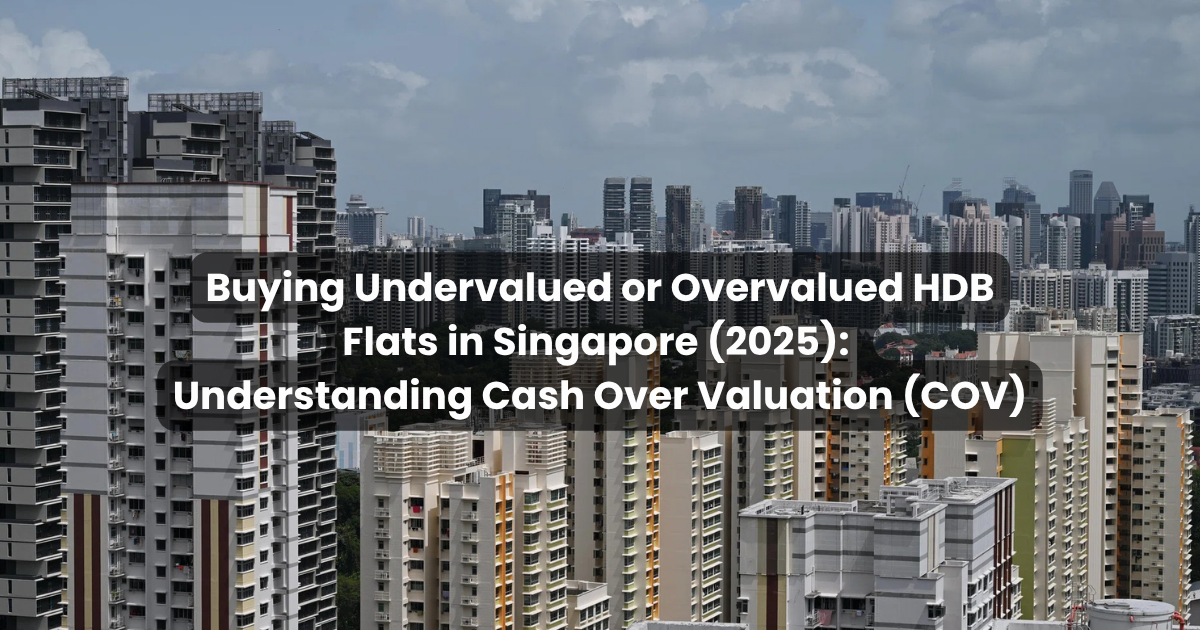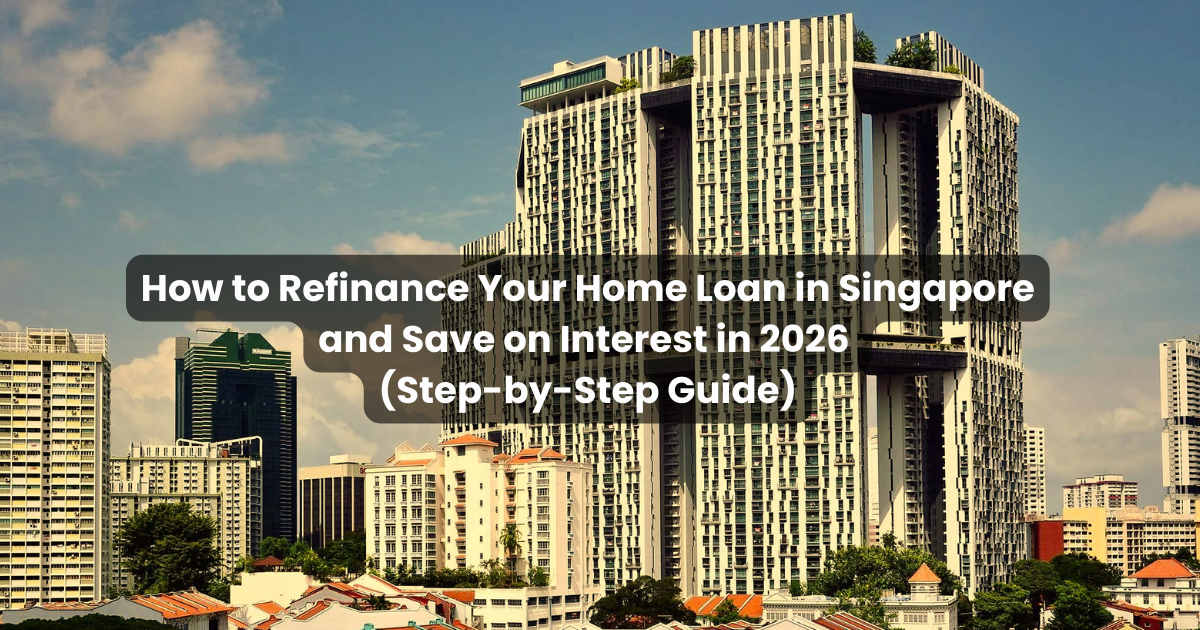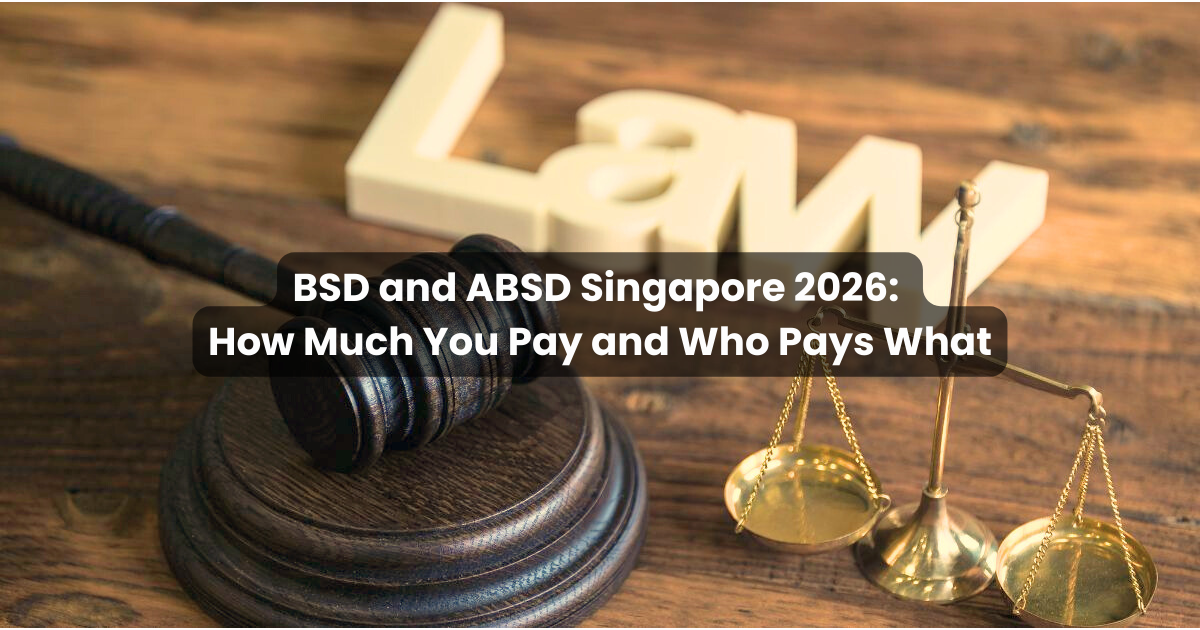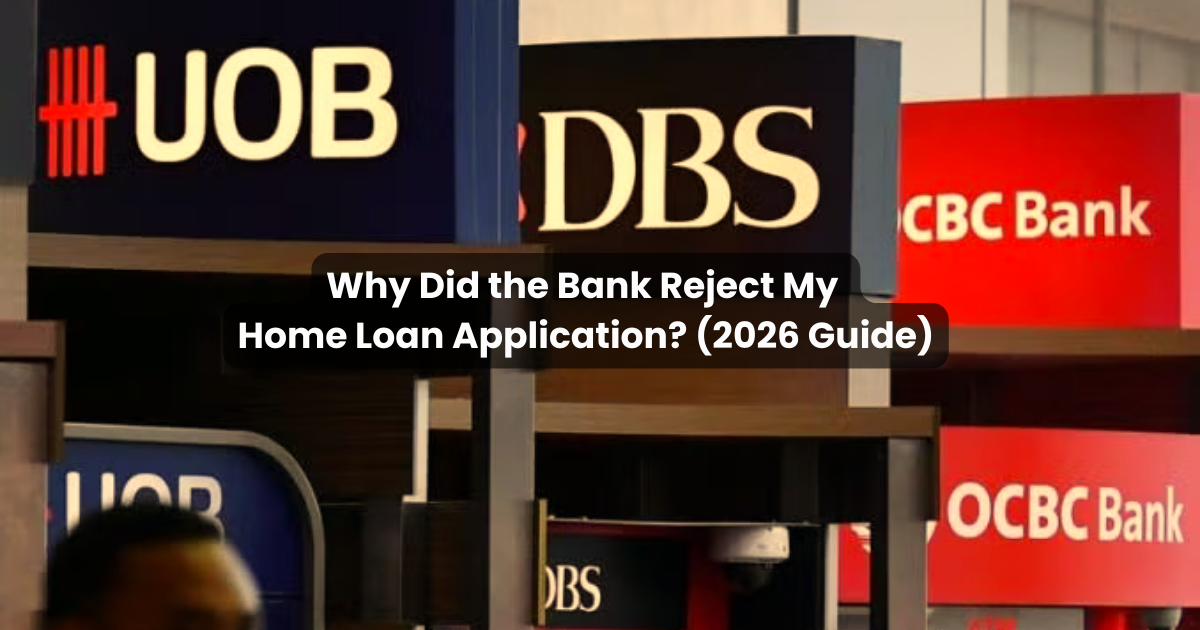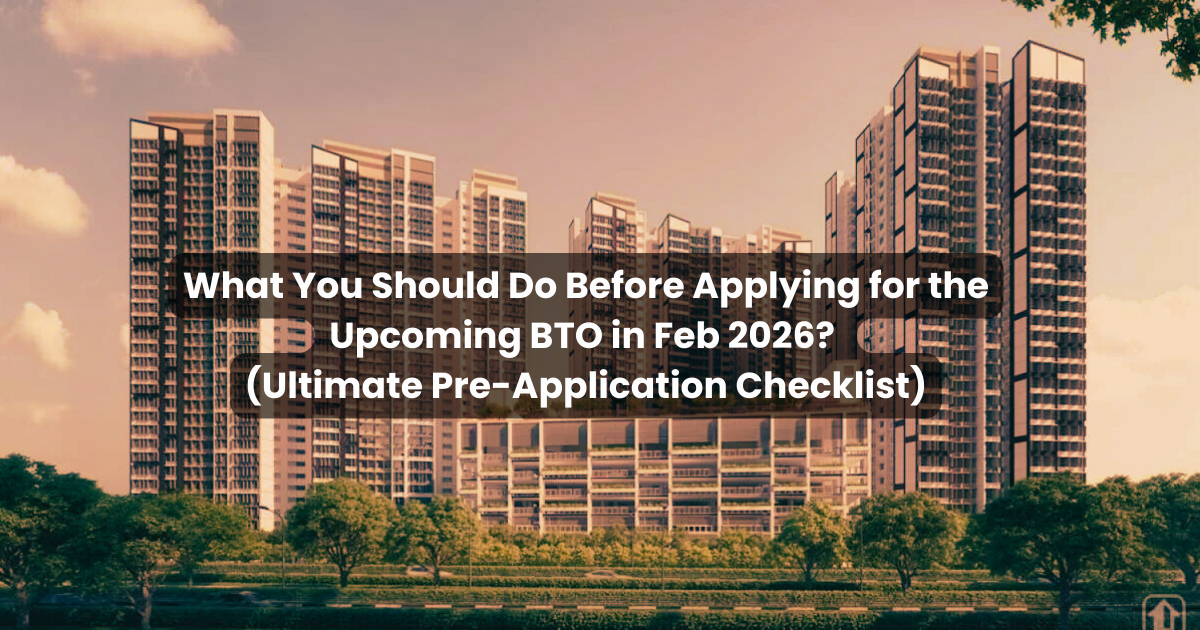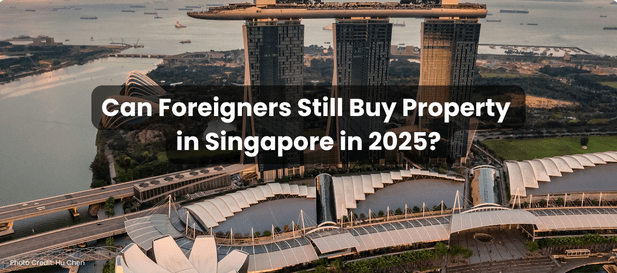- Insights & Updates
Latest News
By Chief Analyst
October 21, 2025When purchasing a resale HDB flat in Singapore, buyers often focus on location, size, and price, but few pause to ask the critical question: am I paying a fair value?
Understanding whether a property is undervalued or overvalued can make a significant difference to your long-term financial outcome. In Singapore’s tightly regulated housing market, this also means grasping the concept of Cash-Over-Valuation (COV), a unique feature of the HDB resale system that directly affects how much cash you must pay upfront.
This article explains how to identify undervalued and overvalued flats, what COV means, and how to make data-driven decisions when buying an HDB resale flat.
Understanding Undervalued and Overvalued Flats
An undervalued flat refers to a property that is priced below its fair market value, often because of temporary factors, seller urgency, or overlooked potential.
In contrast, an overvalued flat commands a price higher than what comparable flats in the area typically fetch, often due to hype, emotional bidding, or sellers testing market limits.
Signs of an Undervalued Flat
An undervalued HDB can be an excellent long-term investment, especially in estates undergoing renewal or gentrification. Common indicators include:
-
The asking price is significantly below recent resale transactions for similar flats in the same block or estate.
-
The flat’s condition may be dated or in need of renovation, but its fundamentals (location, layout, facing) are strong.
-
The area offers upcoming infrastructure or MRT improvements, which the market may not have fully priced in.
-
The flat’s lease length or floor level is less favoured by general buyers, temporarily depressing its price.
In short, undervalued flats present opportunities for buyers who can look beyond surface factors and see intrinsic potential.
Signs of an Overvalued Flat
Conversely, an overvalued flat can burden buyers financially and limit resale prospects. Warning signs include:
-
Asking price is much higher than comparable recent sales in the same area.
-
Sellers demand a high COV (Cash-Over-Valuation) despite no clear advantage in condition or location.
-
The flat’s lease is short, or the location lacks convenience or amenities.
-
The estate has seen recent price spikes driven more by sentiment than fundamentals.
Overpaying for an HDB flat can lead to lower appreciation potential, liquidity risks, and higher upfront cash requirements due to COV.
What Exactly is COV (Cash-Over-Valuation)?
Cash-Over-Valuation (COV) is a term unique to Singapore’s HDB resale market. It refers to the amount by which the agreed purchase price exceeds HDB’s official valuation of the flat.
For instance, if a flat’s agreed price is S$550,000 but HDB’s valuation is S$520,000, the COV is S$30,000. This S$30,000 must be paid entirely in cash, as it cannot be covered by CPF funds or a bank loan.
Always do up an IPA to confirm your max loan eligibility.
How COV Works
-
The valuation is established by HDB after the buyer and seller agree on a sale price and submit their Intent to Buy and Intent to Sell.
-
If the sale price is higher than this valuation, the buyer must pay the difference in cash, the COV.
-
HDB loans or bank loans are calculated based on the lower of the purchase price or valuation, which means buyers paying high COVs cannot borrow more to cover it.
COV once played a highly visible role in the market, with sellers quoting their desired COV upfront. However, since 2014, HDB has stopped publishing valuations before offers, shifting negotiations to focus on total price rather than the COV component. This change was designed to stabilise prices but also makes it harder for buyers to know if they are paying above valuation until after the sale is agreed.
Why COV Matters
COV can heavily influence your cash flow, loan eligibility, and even your perception of whether a flat is undervalued or overpriced.
-
Immediate cash impact: COV is payable in cash upfront and cannot be financed, so it raises the initial amount needed.
-
Lower loanable amount: Loans are based on valuation, not price. Paying COV means you borrow less relative to your total outlay.
-
Market signal: High COV often reflects strong demand or seller overconfidence, a red flag that you may be overpaying.
-
Tax implications: Buyer’s Stamp Duty (BSD) is calculated on the higher of the purchase price or valuation, so paying COV can increase your stamp duty amount.
In simple terms, while paying some COV is not inherently bad (especially for a premium unit or location), excessive COV suggests you may be purchasing an overvalued flat.
Assessing Fair Value in the 2025 HDB Market
Singapore’s resale HDB market remains dynamic, with strong demand for newer, well-located flats but growing price resistance in older estates. To assess whether you’re buying undervalued or overvalued, consider these practical steps:
-
Study recent transactions: Use HDB’s Resale Flat Price Portal to check recent sale prices for similar units in the same block or nearby.
-
Evaluate location: MRT proximity, schools, hawker centres, and future infrastructure (like the Cross Island Line) directly affect long-term value.
-
Check the remaining lease: The shorter the lease, the faster the value decays. Older flats can be deceptively “cheap” but may face limited loan and resale demand.
-
Compare floor levels and orientation: High-floor units or unblocked views may command modest premiums, ensure they are reasonable relative to recent comparables.
-
Consider upcoming supply: Future BTO launches or new condos nearby may affect price appreciation.
Buyers should also set aside an extra 5–10% of the purchase price in cash to prepare for potential COV, as valuations can vary significantly depending on market cycles and demand in the estate.
Strategic Advice for Buyers
To make an informed and financially sound HDB purchase in 2025, apply these strategies:
-
Do your research early: Understand neighbourhood price trends and transaction data before viewing units.
-
Negotiate with data: Use recent sale records to justify your offer, sellers are more likely to respond to factual comparisons.
-
Budget beyond the sticker price: Account for renovation, COV, and stamp duties before committing.
-
Avoid emotional decisions: If competition drives prices too high, it’s wiser to walk away than stretch your finances.
-
Think long-term: Prioritise value retention and liveability over short-term gains. Flats in mature, connected estates tend to outperform in the long run.
Conclusion
In Singapore’s 2025 property landscape, buying an HDB resale flat wisely means looking beyond the advertised price. Understanding undervaluation, overvaluation, and COV can help you distinguish between a fair deal and a costly mistake.
An undervalued flat with solid fundamentals and modest COV can represent strong value and future appreciation potential. Conversely, an overvalued unit demanding excessive COV may strain your finances and limit resale prospects. Ultimately, the key lies in research, patience, and objective assessment, ensuring your home purchase remains both emotionally fulfilling and financially prudent.
Explore related content by topic
What You Should Do Before Applying for the Upcoming BTO in Feb 2026 (Ultimate Pre-Application Checklist)
Before applying for the February 2026 BTO, do an In-Principle Approval (IPA) with Fairloan to understand your loan affordability and review the latest mortgage rates. Comparing current fixed and floating packages early helps you plan confidently and avoid relying on outdated assumptions.
Singapore still allows foreign property ownership, but under tight regulation to preserve sustainability in its housing market. Foreigners can purchase certain private property types freely, while others, like landed homes require special approvals.

